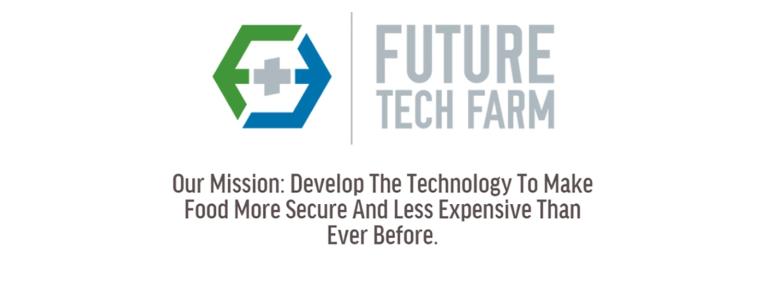
“We think the gaming perspective -- ‘advancing to the next level’ -- makes this project unique. If learning is entertaining, it makes people more eager to learn.”
The game ‘FarmVille’ has become one of the most popular Facebook games because it combines giving the players the chance to simulate working on a farm -- harvesting crops, raising livestock, etc. -- while also being a part of a community within Facebook where those playing the game could socialize and communicate with each other.
Two Kettering entrepreneurs, current student Austin Lawrence and 2010 graduate Brian Falther, are working on a similar social experience based on farming ... only the crops the users are tending will be real ones.
Falther and Lawrence plan to distribute small-scale aquaponics grow systems for personal home use. These modules will allow owners to take care of fish -- the key component of an aquaponics setup -- and learn how to grow sustainable crops such as lettuce, basil, leafy greens and other vegetables. They’re also developing an accompanying website, which will allow ‘farmers’ to photograph and track progress of their ‘plots’ as well as interact with others to find successes/failures and even compete to see who can grow crops the fastest.
“We think the gaming perspective -- ‘advancing to the next level’ -- makes this project unique,” Lawrence said. “If learning is entertaining, it makes people more eager to learn.”
Falther and Lawrence are both proponents of holistic food sources. They hope their project helps educate users on the benefits of sustainable farming.
Falther and Lawrence recently were awarded a $5,000 seed grant from Start Garden, a $15,000,000 Grand Rapids-based venture capital fund for innovative ideas that could potentially turn into businesses.
The project is a pivot from a previous idea related to sustainable, city-based farming that the duo explored. That project would’ve attempted to build large-scale urban farms in shipping containers or even large vacant buildings in cities. Both Falther and Lawrence recognize the need for those types of large-scale farming solutions, but also realized the huge cost it would take to get that project off the ground.
“We’ve pivoted from our initial idea because of the startup costs,” Falther said. “It would cost seven figures to even get started. This project is a compact, home-based design that is more connected.”
“We realize there’s a need for sustainable food sources in cities on that large scale,” Lawrence said. “But we also realize there’s a vital need for education, and this smaller-scale project can fulfill that need.”
The actual units will have a footprint about the size of a laundry basket. People will be able to grow anything including leafy greens, herbs and other crops. Users will also learn about things like soil pH, water quality and other factors that impact the ability to grow or not grow crops. The systems will have integrated sensors so people can track these variables too.
Although the practical lessons that the units will teach about farming are important, the social component that the accompanying website will offer is also valuable.
“One single person can take care of these farms, but the beauty is there will be an entire community of supporters to turn to for resources,” Falther said. “It’s like ‘Farmville’, just with real crops.”
Although individuals will certainly be able to own these products for their homes -- they’d be a ‘conversation starter,’ as Lawrence puts it -- they’d also be extremely useful in a classroom setting for teachers to use with students. The students in classes that have them would also be able to communicate with each other and virtually ‘visit’ other farms to compare progress.
“We think schools and people who want to use these for educational purposes will be a large customer segment,” Falther said.
Along with the Start Garden seed investment, Falther and Lawrence have also received funding from the Kettering Entrepreneur Society and the Awesome Foundation. They are also participating in the Michigan Clean Energy Venture Challenge, a business startup competition with a grand prize of $50,000. They’ve already made the first round of cuts and have been awarded a $2,000 micro grant.
Currently, Falther and Lawrence are completing the construction of their demonstration system which will be unveiled in public, live - on Dec. 20 at the Start Garden Update Night. They’ll follow that up with beta testing of 10 initial test systems (spots are available for pre-sale now). Their goal with getting this product on the market is to work towards finding the most efficient methods of food production.
“Our goal is just to re-associate the public consciousness with this issue,” Lawrence said. “We hope this product can influence positive change.”
Visit Future Tech Farm on Facebook.
Follow Future Tech Farm on Twitter.